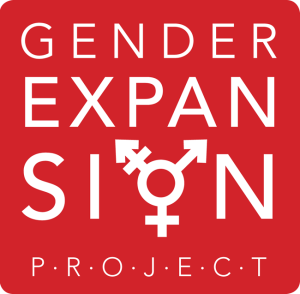When a baby is born intersex, many physicians find it appropriate to assign a sex through surgical intervention. Advocates of early genital surgery suggest that, if normalization surgery is done at birth or shortly thereafter, the intersexed child will be capable of developing a gender identity that echoes the surgically assigned gender, therefore decreasing psychological trauma in the patient. However, with the advent of marriage equality in many states, the intersex community has begun to develop a collective voice—a voice that is challenging the ethical permissibility of normalizing surgeries at birth and shedding light on its destructive potential.
It all comes down to the conception of normality: normal genitalia, normal sexual anatomy, normal sexual desire—these arbitrary expectations presume that there is a correct way to be male or female, and, on the flip side of the coin, that there is an incorrect way to be male or female. This notion of ‘normality’ complicates and obscures ethical boundaries—boundaries that are drawn by the scalpels of clinicians who have not received adequate education on the psychosocial implications of intersexuality.
Because physicians are not properly trained to treat intersexuals, there is no common understanding amongst health care providers of what exactly is meant by the word ‘intersex.’ Is there a point at which a male becomes a female, anatomically speaking? If sexuality exists on a spectrum, how can we fairly decide the point at which genital ambiguity becomes too ambiguous?
What we see here is a sad truth: the terms ‘female’ and ‘male’ do not describe what is anatomical; rather, they describe that which is designated first by medical professionals, and second by the sociocultural forces that impress importance to a social fabrication which is viewed instead as a social authenticity. These forces serve only to alienate intersexed children and make them feel inadequate, undeserving, and monstrous.
It is for this reason that adult members of the intersex community have begun sharing their narratives. Adults living with intersex often assert that good intentions are inadequate reasons to maintain a practice that has shown itself unethical and unscientific. Many of these adults were not told of their normalizing surgeries, so they grew up feeling abandoned and alone. Others suffered severe psychological damage when they grew up to identify with the sex not assigned to them at birth. Good physicians take the whole patient into account when developing a treatment plan, but these narratives often mention a general lack of appreciation for the psychosocial implications of an intersex diagnosis. Many intersexed adults claim that physicians are insensitive, so—rather than providing families with resources and options—they encourage surgical normalization simply because it’s easier than dealing with a patient’s psychological trauma.
I believe that, with the proper educational tools, intersexed persons will receive healthcare that is ethically right and medically appropriate. As it stands, there are no guidelines to which physicians can refer when treating intersexed patients. There is no standard of care, and there certainly isn’t a course in medical school devoted to teaching future physicians how to empathize with an intersexed patient. Therefore, I propose six guidelines that—when incorporated into medical education—will give physicians the proper tools to engage in ethical, inclusive, non-discriminatory healthcare:
- Intersexed children should be treated in a supportive, honest, and shame-free manner. They should be awarded full disclosure of all medical information, even if the physician is afraid that it would harm the child.
- Psychological help should be readily available for intersexed children and the families of intersexed children. The obstetrician who delivers the intersexed child should refer the family to a psychologist who specializes in counseling LGBT youth.
- Care providers should connect intersexed children and adults to avenues of peer support outside of the clinical setting. These include, but are not limited to, parent support groups, intersex support groups, and organizations that advocate for intersex equality.
- Intersexed newborns should be given a gender assignment rather than a sex assignment.
- The only surgeries that should be performed at birth are those that are necessary to maintain the child’s physical health.
The Gender Expansion Project is a non-profit advocacy group that works to promote gender inclusive education and awareness. http://genderexpansionproject.org/gep-history/
We are observing the birth of a global movement toward recognition of the ethical treatment of intersexed persons, but the fight for equality is far from over. For America to walk in stride with countries such as Switzerland, Australia, and Germany—all of which have passed laws to ensure the ethical treatment of intersexuals—we must address our semi-flawed system of medical education. Physicians have a responsibility to provide ethical treatment to all persons regardless of race, class, gender, and sex. Therefore, medical schools have a responsibility to better educate their future physicians so that the next generation of healthcare providers will be better equipped to face the challenges associated with the intersex community.

